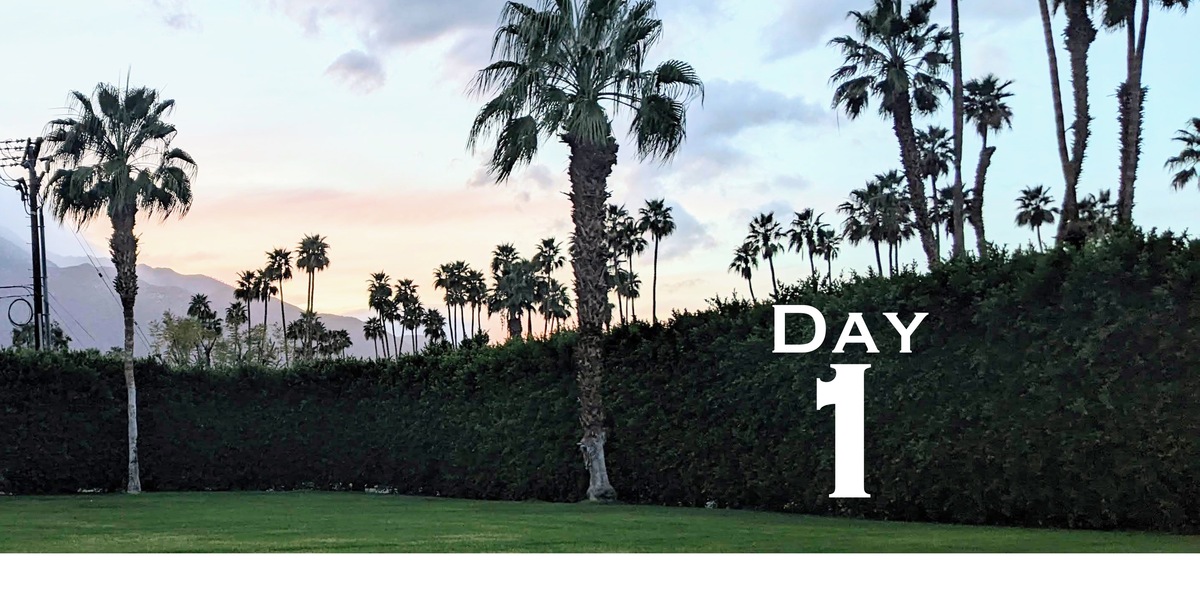HDBuzz takes your questions to the annual therapeutics meeting of CHDI
HDBuzz visits Palm Springs to talk with CHDI about the latest HD research. Send us your questions!
 By Professor Ed Wild January 28, 2011 Edited by Dr Jeff Carroll
By Professor Ed Wild January 28, 2011 Edited by Dr Jeff Carroll
Over the last few years, CHDI Inc. has become the largest single driving force behind the development HD treatments. CHDI’s annual therapeutics conference in Palm Springs, California, brings together pharmaceutical companies, biotechnology companies and researchers to share their latest, hottest findings and talk about the path to a cure. HDBuzz will be reporting from the conference – and we want your questions!
CHDI
Many HD people have probably never heard of CHDI Inc. That should change, because CHDI and HD family members share the same goal. CHDI’s website explains that its aim is to “rapidly discover and develop drugs that delay or slow Huntington’s Disease”. That’s a goal that we can all get behind.

So what is CHDI, and how does it fit into the HD research picture?
CHDI is a not-for-profit ‘virtual biotechnology’ company. That means they have a number of scientists working full time on HD. But rather than work on one project at a time with their own hands, each scientist at CHDI manages a number of external projects. They work with academic labs, as well as commercial organizations that perform research on a contractual basis. In this way, CHDI is able to conduct a huge amount of basic research for an organization of its size.
Annual Therapeutics Meeting
For the last six years, CHDI has held a conference to bring together the top minds in HD research for four days of idea-sharing and discussion about how make therapies a reality.
There are lots of academic conferences, but the CHDI meeting is a unique experience. The relationships CHDI has developed with collaborators straddle the worlds of academic and clinical research, as well as the commercial side of making drugs.
It’s pretty rare to get such a broad range of expertise at a single scientific meeting, and it fosters unique collaborations between academic researchers and commercial organizations. Also, because CHDI’s mission is so clear, each year there’s a very intense focus on patients, and how to turn ideas into treatments.
This year promises significant updates from many scientists. There will be a whole morning of presentations focusing on strategies to reduce the levels of the huntingtin protein. These approaches include gene silencing with siRNA, an avenue that many in the community are excited about. Other sessions include efforts to understand the energy problems observed in HD, the use of growth factors for therapy, and other exciting areas of research.
The Research Pipeline
Developing a drug is a long process. It starts when a scientist makes an observation that helps explain how a disease happens. Turning that knowledge into a drug requires a complicated set of steps.
First, molecules have to be discovered that can alter the process. Usually that’s developed in isolated cells. Next, the drug has to be tested in animal models of the disease, beginning with simple ones like fruit flies and progressing to more complex animals like mice.
“If you had the chance to sit down with the people directing a large portion of HD research, what would you want to know? ”
If the drugs continue to work, they need to be tested for toxicity, to ensure that they don’t have terrible side effects. Finally, if they’re safe and effective in animals, they have to be tested in people.
Organizations that develop drugs usually work on many different drugs at any given time. They talk of a ‘pipeline’ of drugs - some very early in development, and some more advanced. CHDI has its own pipeline of drugs in development, and this year’s meeting includes an exciting-sounding talk entitled ‘CHDI’s Internal Late Stage Programs’.
Questions for CHDI? Send them to us!
HDBuzz has been granted an exclusive interview with the senior management of CHDI at this year’s meeting. We’ll be sitting down with Robert Pacifici, CHDI’s Chief Scientific Officer, as well as the Vice Presidents of Biology (Ignacio Muñoz-Sanjuan) and Chemistry (Celia Dominguez). We hope this will be a unique opportunity for HD patients and families to hear about CHDI and its drug development work.
We’d like to hear from you. If you had the chance to sit down with the people directing a large portion of HD research, what would you want to know? Do you have questions about where particular branches of research stand?
Send your questions to us at CHDI2011@HDBuzz.net and we’ll pose them to CHDI management. This is your chance to ask direct questions about the state and future of HD research from the people leading it. Let your voice be heard!
HDBuzz, live from Palm Springs
Each evening of the conference, HDBuzz editors and writers will post a daily update article to HDBuzz.net, capturing all the most cutting edge research, in plain language.
Then, towards the end of the conference, we’ll post another article reporting on our interview with CHDI management. Get your questions in to CHDI2011@HDBuzz.net!


